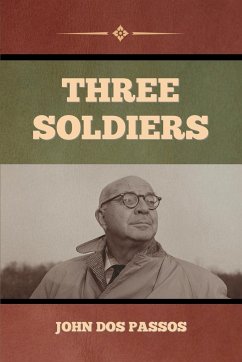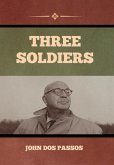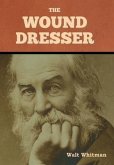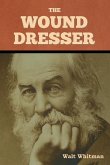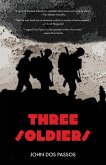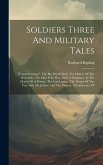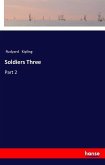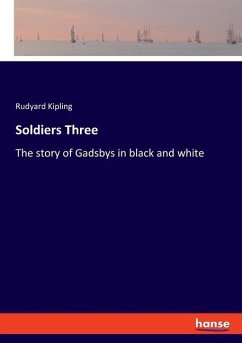In the end you are fundamentally alone and no matter how much you would like to imagine that others could complete you or even just understand you, the saddest truth is that even this is far too much to ask. This is a painfully sad story, a realist novel told about First World War - so pain is obligatory. ... (Trevor) Bio John Roderigo Dos Passos (January 14, 1896 - September 28, 1970) was an American novelist, most notable for his U.S.A. trilogy. Born in Chicago, Dos Passos graduated from Harvard College in 1916. He traveled widely as a young man, visiting Europe and the Middle East, where he learned about literature, art, and architecture. During World War I, he was an ambulance driver for American volunteer groups in Paris and Italy, before joining the U.S. Army Medical Corps. In 1920, his first novel, One Man's Initiation: 1917, was published, and in 1925, his novel Manhattan Transfer became a commercial success. His U.S.A. trilogy, which consists of the novels The 42nd Parallel (1930), 1919 (1932), and The Big Money (1936), was ranked by the Modern Library in 1998 as 23rd of the 100 best English-language novels of the 20th century. Written in experimental, non-linear form, the trilogy blends elements of biography and news reports to paint a landscape of early 20th-century American culture. Beyond his writing, Dos Passos is known for his shift in political views. Following his experiences in World War I, he became interested in socialism and pacifism, which also influenced his early work. In 1928, he traveled to the Soviet Union, curious about its social and political experiment, though he left with mixed impressions. His experiences during the Spanish Civil War led to disillusionment about left-wing politics while also severing his relationship with fellow writer Ernest Hemingway. By the 1950s, his political views had changed dramatically, and he had become more conservative. In the 1960s, he campaigned for presidential candidates Barry Goldwater and Richard Nixon. As an artist, Dos Passos created his own cover art for his books, influenced by modernism in 1920s Paris. He died in Baltimore, Maryland. Spence's Point, his Virginia estate, was designated as a National Historic Landmark in 1971. (wikipedia.org)
Hinweis: Dieser Artikel kann nur an eine deutsche Lieferadresse ausgeliefert werden.
Hinweis: Dieser Artikel kann nur an eine deutsche Lieferadresse ausgeliefert werden.

